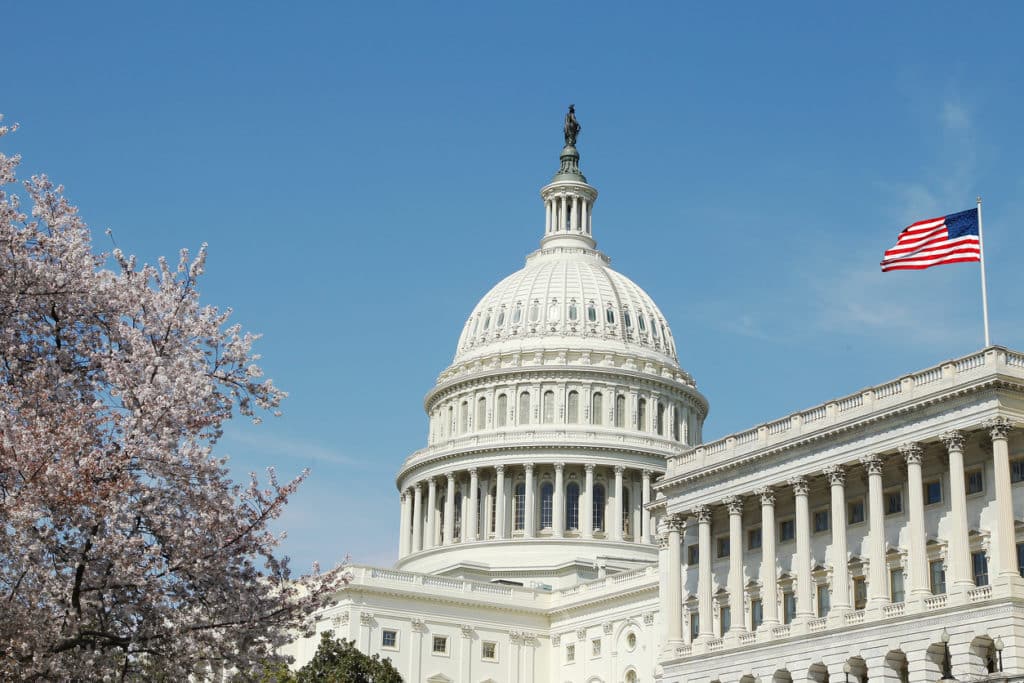

The U.S. Senate Committee on Banking, Housing, and Urban Affairs Subcommittee on Digital Assets held a hearing on 24 June 2025 to discuss legislative frameworks for market structure.
Ryan VanGrack, vice president of legal at Coinbase Global, oversees litigation, regulatory investigations, and enforcement matters globally for the U.S. listed crypto exchange and testified at the hearing. VanGrack stressed in his written testimony that Congressional action is urgent to cement America’s leadership in innovation.
“This promise is at risk due to the absence of a clear, uniform, and simple regulatory framework for digital assets,” he added. “The resulting uncertainty allows bad actors to operate, drives responsible innovators abroad, and leaves customers behind.”
Ryan is one of the most talented securities experts around. Excited to see him share his expertise with the Committee as they work to advance market structure legislation. https://t.co/lqvKF6kRLG
— Faryar Shirzad 🛡️ (@faryarshirzad) June 24, 2025
I'm encouraged to see the House & Senate prioritizing this issue, and to see lawmakers from both parties working together. Customer protection, innovation, & econ oppt transcend party lines. 2/3
— Ryan VanGrack (@RVanGrack) June 23, 2025
VanGrack argued that effective legislation should resolve foundational questions, such as which federal agencies have jurisdiction over various parts of the digital asset ecosystem; should establish a uniform federal regime and offer straightforward, workable rules for all participants, including developers, entrepreneurs, and retail investors.
For example, market participants don’t know whether an asset will be treated as a commodity, a security, or something else according to VanGrack. In addition, they don’t know which rules regulators will apply at every stage in a digital asset’s life cycle from primary issuance to secondary trading. Crypto firms also face a patchwork of overlapping, and often conflicting, federal and state regulatory requirements.
“Coinbase strongly believes that the responsible and robust growth of the crypto industry in the United States depends upon having a responsible and robust legal framework,” said VanGrack. “The advent of digital assets and blockchain technology represents a generational opportunity to reimagine financial systems to be more transparent, accessible, and efficient.”
Rostin Behnam, Distinguished Fellow at the Psaros Center For Financial Markets & Policy at Georgetown University and former chairman of the U.S. Commodity Futures Trading Commission also testified at the hearing and agreed in his written testimony that there is a gap in regulation for the non-security digital asset market under current U.S. law.
“The regulatory gap remains today, and must be filled with targeted legislation; it has facilitated countless scandals and fraudulent activity, some very small and typical in criminal form, others massive in profile,” added Behnam. “As the digital asset market continues to weave itself into traditional financial institutions, concerns regarding broader market resiliency and perhaps even financial stability will grow. In short, our current trajectory is not sustainable.”
Behnam has consistently called for new legislative authority for the CFTC in the non-security digital asset market to protect investors. He said digital asset market structure legislation should set a durable legal precedent to define digital tokens as either securities or commodities; and that current securities and commodity derivatives market structure should be used as the model for digital asset market structure.
He also highlighted that while he was CFTC chairman, he was also vice-chairman of the International Organization of Securities Commissions (IOSCO), and saw other jurisdictions establishing regulatory frameworks for digital assets.
“The current divide between the U.S. and our international counterparts creates regulatory arbitrage opportunities that are exploited by bad actors, and prohibits the U.S. from contributing to much needed multilateral coordination efforts,” added Behnam. “Further, the potential economic benefits and innovation arising from this technology ultimately will be stymied without regulatory certainty.”
Greg Xethalis, general counsel at Multicoin Capital, also appeared at the hearing. Multicoin invests in both liquid token and venture strategies across the digital asset ecosystem.
“Through our venture activity, we work with and support founders seeking to build projects that generate economic and commercial activity in the U.S. and abroad,” said Xethalis. “These founders have been challenged by the lack of regulatory clarity and increasing costs of operating in the United States, unfortunately driving many to build offshore and to make their products inaccessible to U.S. persons altogether.”
He argued in his written testimony that regulatory certainty unlocks growth as when teams know what rules apply and how to follow them, they can operate confidently, and asset allocators can understand legal and regulatory risks.
“While other global regulators have initiated standard setting, licensing and registration regimes, the United States remains the dominant force to shape global financial and commercial markets and must not cede this authority to others,” he added.
Xethalis supports both the SEC and CFTC working in parallel. The SEC is well-positioned to oversee token fundraising mechanisms and disclosures where traditional investment contract principles apply, according to Xathalis, while the CFTC is best suited to oversee commodity-like spot markets and ensure robust integrity in secondary trading.
He also warned that decentralized systems should not be subject to frameworks built for traditional intermediaries and that disclosure reform needs to be tailored to token networks.
“Open-source smart contracts and self-custodial software cannot and should not be regulated as if they are banks, broker-dealers or other financial institutions,” Xethalis added. “Truly decentralized systems operate in a transparent, rules-based manner that empowers and gives agency to users, instead of our traditionally regulated middle men.”
On the heels of the Senate passage of the GENIUS Act, @SenatorTimScott, @SenLummis, and I are working with our @SenateGOP colleagues on market structure. Looking forward to working on this as the House moves to send the GENIUS Act to @POTUS’s desk to sign.
— Senator Bill Hagerty (@SenatorHagerty) June 25, 2025








